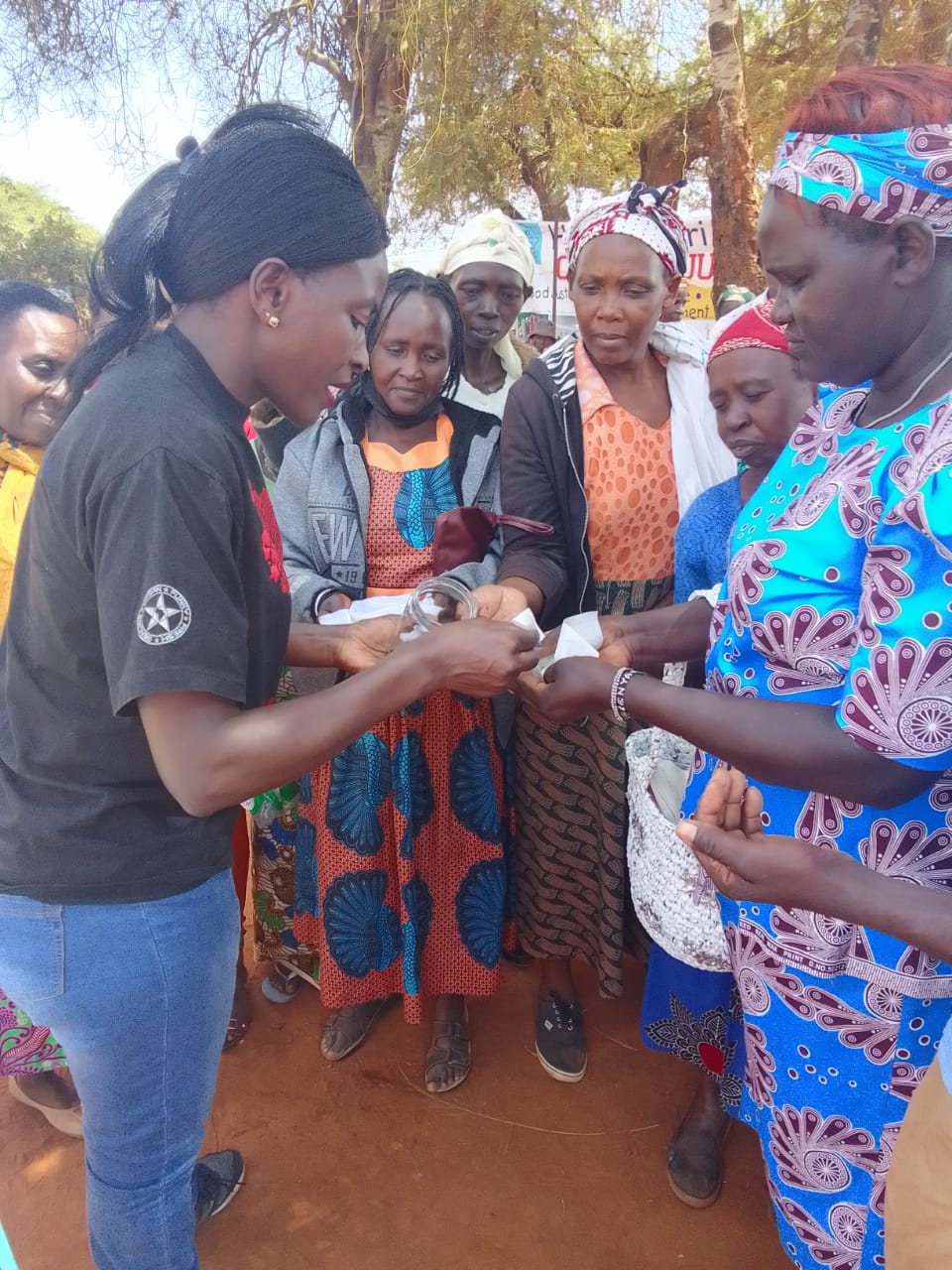Seeds & Women:
Through an African Lens
Leonida Odongo
![]()
Seeds & Women:
Through an African Lens
Through an African Lens
Leonida Odongo
![]()
“Seeds & Women: Through an African Lens was published in
Active Cultures’ Digest, Issue 13, August 2022 (edited by Ferron
Salniker).
Images: All images courtesy of the artist and Haki Nawiri Afrika.
Monica Yator, Sharing seeds with women, June 16, 2020.
Monica Yator, Seed Sovereignty Dialogue, June 16, 2020.
Peter Nzioka, Sorghum -From Eastern Kenya, July 7, 2022.
Isiah Biwott, Indigenous Maize from Baringo County (Indigenous also refers to Farmer Managed Seeds ), August 7, 2022.
Famara Diedhiou, Seed Fair, Djimini, Senegal, March 15, 2022.
__
Leonida Odongo is social justice activist and a community educator, based in Kenya. She is a member of the Alliance for Food Sovereignty in Africa (AFSA), Climate Action Group, and a Co-Chair of the Seed Working Group within the same network. She engages communities in different parts of Kenya and beyond through an initiative known as Haki Nawiri Afrika whose mission is to advance social justice among marginalized communities and university students. She was recently confirmed as a board member for A Growing Culture, a non-profit organization working towards a future of food sovereignty.
Images: All images courtesy of the artist and Haki Nawiri Afrika.
Monica Yator, Sharing seeds with women, June 16, 2020.
Monica Yator, Seed Sovereignty Dialogue, June 16, 2020.
Peter Nzioka, Sorghum -From Eastern Kenya, July 7, 2022.
Isiah Biwott, Indigenous Maize from Baringo County (Indigenous also refers to Farmer Managed Seeds ), August 7, 2022.
Famara Diedhiou, Seed Fair, Djimini, Senegal, March 15, 2022.
__
Leonida Odongo is social justice activist and a community educator, based in Kenya. She is a member of the Alliance for Food Sovereignty in Africa (AFSA), Climate Action Group, and a Co-Chair of the Seed Working Group within the same network. She engages communities in different parts of Kenya and beyond through an initiative known as Haki Nawiri Afrika whose mission is to advance social justice among marginalized communities and university students. She was recently confirmed as a board member for A Growing Culture, a non-profit organization working towards a future of food sovereignty.
“Why should I have a granary, when there is nothing to put inside?”
At a dialogue about seed sovereignty in Kaani, Kenya, a grandmother asked the question. Through my work with my organization Haki Nawiri Afrika, I organize these events that share political and technical education on the entire food production process from soil, seed, caring for crops, harvest to post-harvest. The work we do is anchored in agroecology principles of diversity, co-creation, knowledge sharing, and using locally available resources and indigenous knowledge. Elders often share resources—and lament— about the changing relationship to seeds in their communities.
With so-called modernity, granaries, which used to live on each farm and village have disappeared. In the past, farmers kept a diversity of seeds that could survive in times of drought, meaning crops like yams, cassava, sweet potatoes and some varieties of millet and sorghum could not disappear just because of a few months of drought. Soil was fertile because different crops thrived. Now agrovets—shops that sell fertilizers and animal feed—have become farmers’ major sources of seeds and other farm resources. With the influence of giant biotech and chemical companies, seed varieties have become privatized, and laws have passed criminalizing seed sharing. That means local seed diversity has decreased and been replaced with foreign varieties that are dependent on chemicals and pesticides. Small scale farmers are now more exposed to hunger and survival on relief food.
But in Africa seeds are not just about food and economics; they are cultural. Various rituals are carried out around seeds, which have diverse cultural significance across African communities. The practices around seeds have been carried from generation to generation. Unfortunately, these cultural practices are disappearing with modernization, the death of elderly farmers, and a dominant narrative that paints indigenous seeds and the associated cultural practices and values as archaic and primitive.
However, despite this gradual loss of indigenous seeds, women are still often the keepers of seeds, and therefore culture. Just like women gather and protect seeds across Africa, I am collecting their stories.
With so-called modernity, granaries, which used to live on each farm and village have disappeared. In the past, farmers kept a diversity of seeds that could survive in times of drought, meaning crops like yams, cassava, sweet potatoes and some varieties of millet and sorghum could not disappear just because of a few months of drought. Soil was fertile because different crops thrived. Now agrovets—shops that sell fertilizers and animal feed—have become farmers’ major sources of seeds and other farm resources. With the influence of giant biotech and chemical companies, seed varieties have become privatized, and laws have passed criminalizing seed sharing. That means local seed diversity has decreased and been replaced with foreign varieties that are dependent on chemicals and pesticides. Small scale farmers are now more exposed to hunger and survival on relief food.
But in Africa seeds are not just about food and economics; they are cultural. Various rituals are carried out around seeds, which have diverse cultural significance across African communities. The practices around seeds have been carried from generation to generation. Unfortunately, these cultural practices are disappearing with modernization, the death of elderly farmers, and a dominant narrative that paints indigenous seeds and the associated cultural practices and values as archaic and primitive.
However, despite this gradual loss of indigenous seeds, women are still often the keepers of seeds, and therefore culture. Just like women gather and protect seeds across Africa, I am collecting their stories.
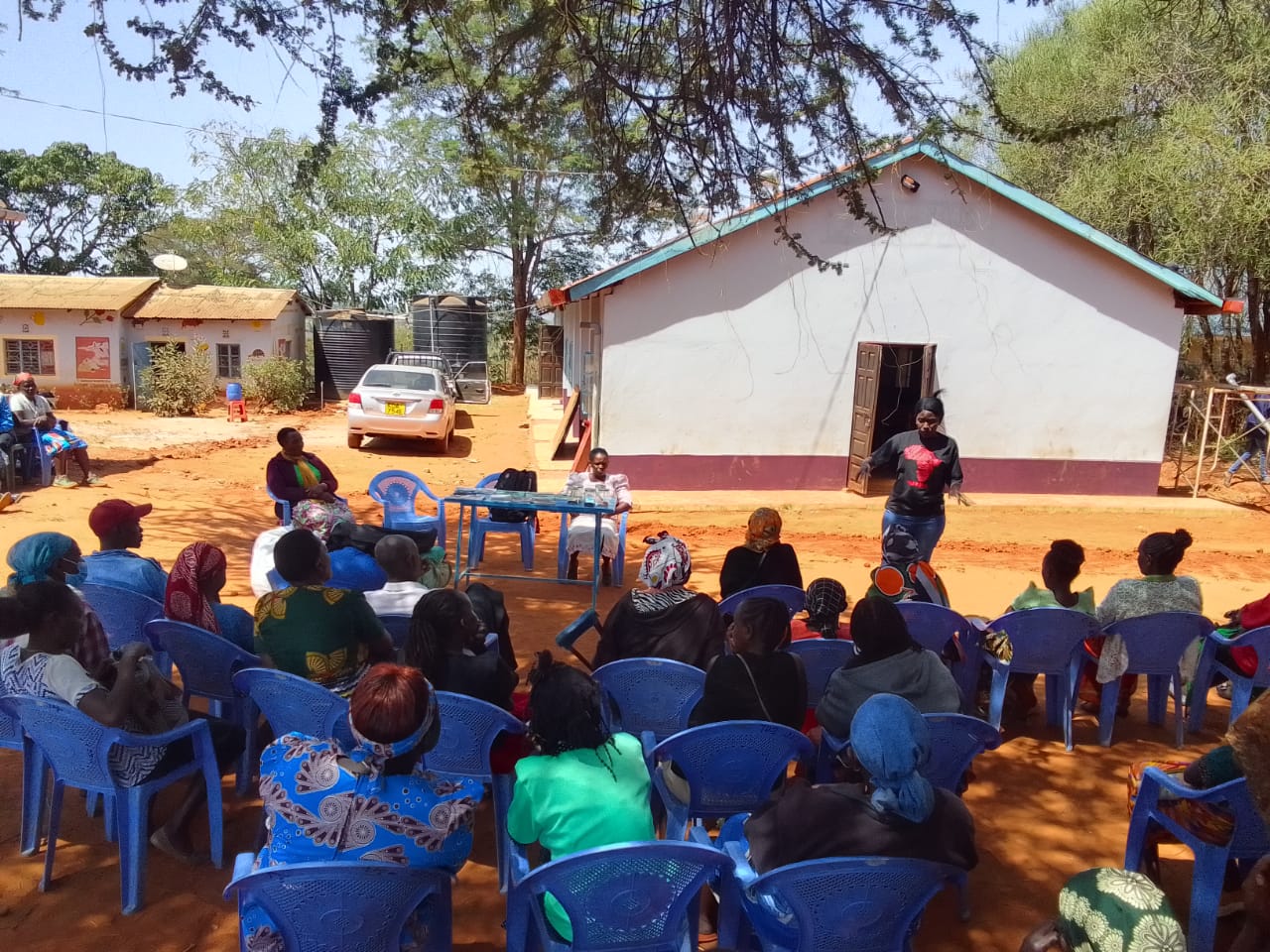
Preservation
In traditional African societies, seeds were associated with purity, and because of this, people of reproductive age weren’t allowed to handle seeds. The preservation was done by an elderly woman and in some communities, by children. Among the Luo people (where marriage was polygamous) in Kenya, parts of Uganda, and Tanzania, the eldest wife, known as mikayi was the one who handled seeds on behalf of the homestead and was the first one to sow seeds, a process known as golo kodhi. She was also the first one to harvest. This seniority was linked to the wisdom that comes from being elderly and like a mother to the rest of the people on the homestead.
African women also play a central role in promoting biodiversity. One woman can store up to 10 different varieties of given seeds. That collection not only preserves varietals, but assures she’ll have enough seeds to replant. . Visit an African village, and you will come across various crops in neat rows, the work of a mother who has ensured her family has a balanced diet.
Biodiversity goes beyond preserving food sources, it is threaded through life and death. The Luo believe that the spirits of ancestors and gods lived on rivers, valleys, lakes, and streams and could sometimes visit the living in the form of nyawawa, people who died under mysterious circumstances and often come back to torment the living as roaming spirits. Those ecosystems are preserved by a healthy diversity of seeds.
African women also play a central role in promoting biodiversity. One woman can store up to 10 different varieties of given seeds. That collection not only preserves varietals, but assures she’ll have enough seeds to replant. . Visit an African village, and you will come across various crops in neat rows, the work of a mother who has ensured her family has a balanced diet.
Biodiversity goes beyond preserving food sources, it is threaded through life and death. The Luo believe that the spirits of ancestors and gods lived on rivers, valleys, lakes, and streams and could sometimes visit the living in the form of nyawawa, people who died under mysterious circumstances and often come back to torment the living as roaming spirits. Those ecosystems are preserved by a healthy diversity of seeds.

Ceremony
Women also mark moments in life through traditions involving seeds. Seeds in the African context are not just providers of food. As gifts, they bless weddings and symbolize beginnings for new families. The connection of seeds to the earth, the rooting process, is a symbol of the continuity of life.
Among the Akamba in the Eastern part of Kenya, elderly women held traditional ceremonies to train the young on how to handle seeds once they became of age. Within this community, seed selection was held on the farm to ensure that only the early maturing and best seeds were preserved for the next season. These processes enabled the intergenerational transfer of knowledge. In the same community, seeds were offered as a blessing to the ancestors before planting was done. In marriages, new couples are also gifted seeds.
By preserving these seeds, traditional ceremonial foods were passed down, and moments in life and death were marked with certain seeds. During weddings, the Luo made ugali, a Kiswahili word for a paste made from maize flour cooked in warm water and eaten as a staple food in Kenya, which is also consumed in other parts of Eastern and Southern Africa. It’s made with sorghum, which is known as bel. Sorghum belongs to a cluster of crops labeled orphaned crops, which are not traded at international levels and therefore don’t benefit much from research. It’s now a neglected crop among farmers.
In the case of death when someone died mysteriously and there was a body to bury, the community would bury a banana, because bananas take a short time to reproduce, symbolizing fast release of the spirit to the ancestral realm. And if an in-law died, a gift to the mourners was brought in the form of a sheep to be slaughtered with a bag of maize.
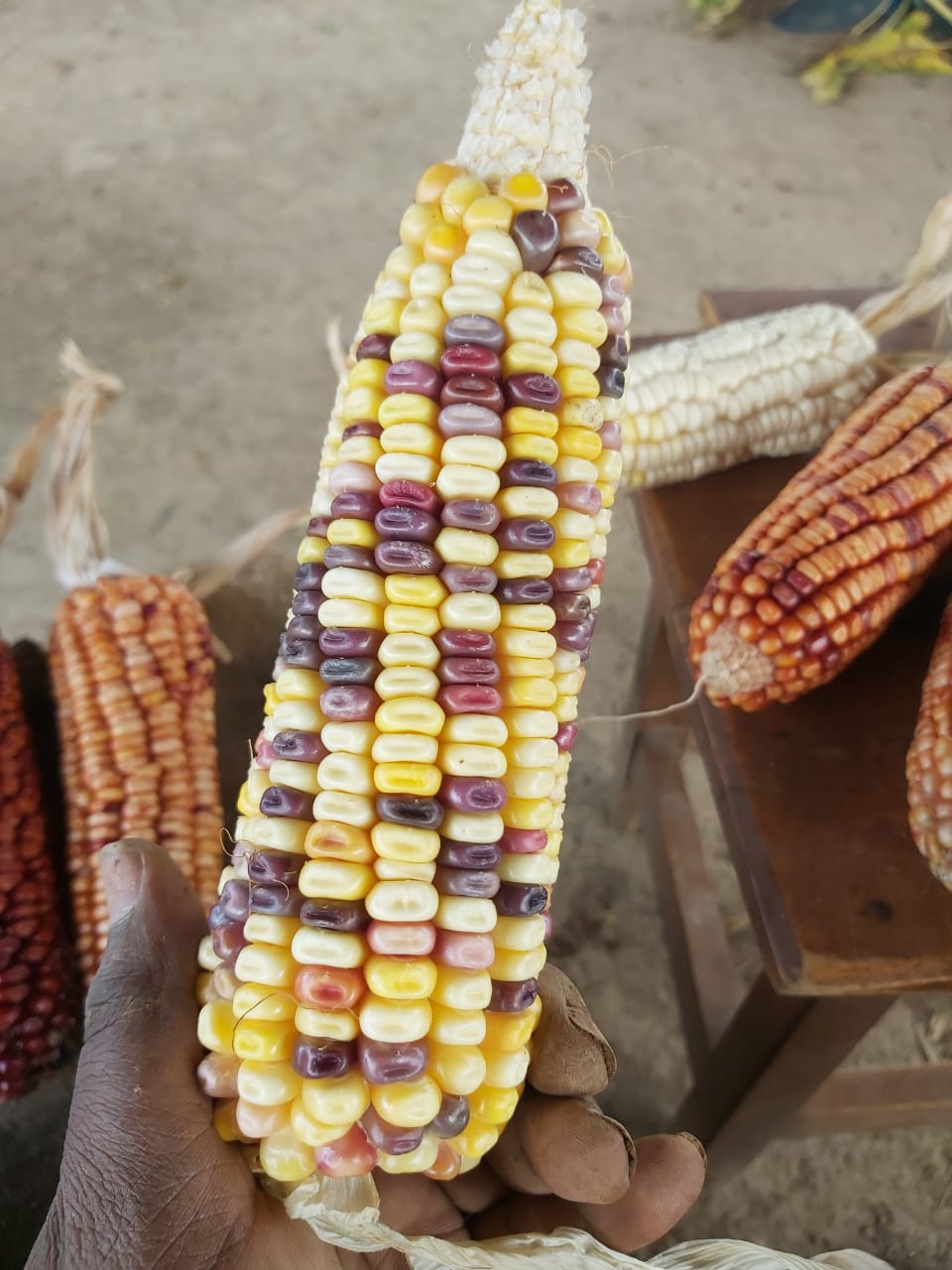
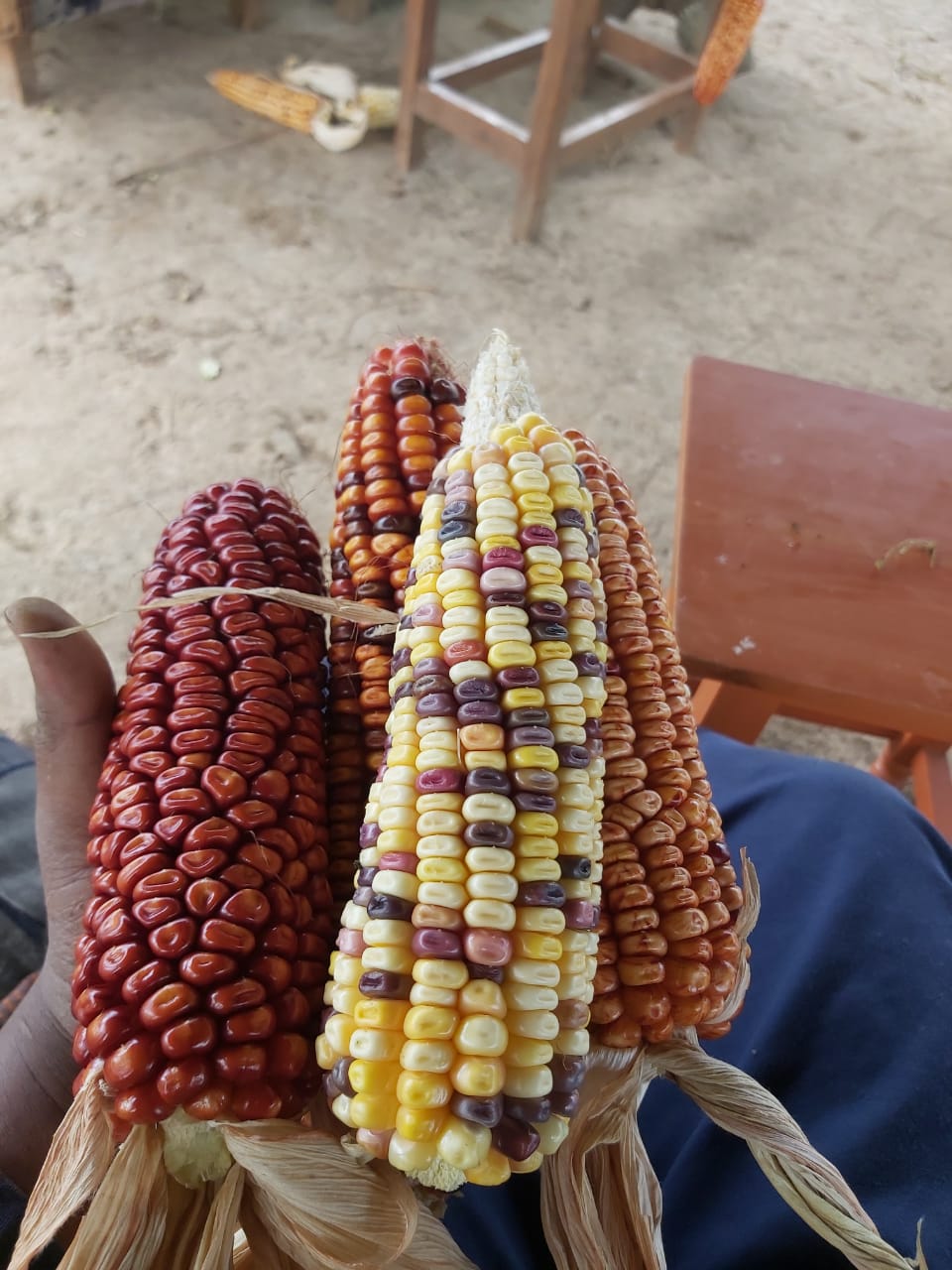
Seed Management
The African rice known as oryza glaberrima was first domesticated 3,000 years ago and comes from Casamance, in the South of Senegal. Over the years, the number of varieties has declined. But the Diola community mainly grows rice. Despite the existence of negligible differences in practices from one Diola sub-group to another, in general, harvesting rice is a women’s role. As rice is harvested, seed selection is done at the same time. Women are responsible for the management of seeds which includes storage, conservation, and distribution to different spaces. Repartition refers to the many varieties and different plots of land that a family may own. Because they have observed the behavior of these seeds from the nursery to harvest, women determine which variety should be planted in which designated area.
For each cultural practice among the Diola community, a specific variety of rice is used. One of the most common practices is known as ga waasen, when incantations and sacrifices are offered in specific places while throwing rice. Women practice ga waasen during prolonged drought, when there is an infestation of crop pests, and even when there is an epidemic or emergence of a contagious disease.
Among the Luo, as women harvest beans, the best seeds are kept aside. The bean pods are then burnt into ash and this ash is thoroughly mixed with the beans’ seeds preserving the beans and at the same time preventing pests from attacking. They sort maize seeds as well, which are hung in the kitchen to dry slowly, eventually replanted. Women pick the seeds of dried indigenous vegetables too and store them for the next season. This knowledge thrived in the past and women are now bringing it back into their communities, using indigenous vegetables as food sources and as medicine.
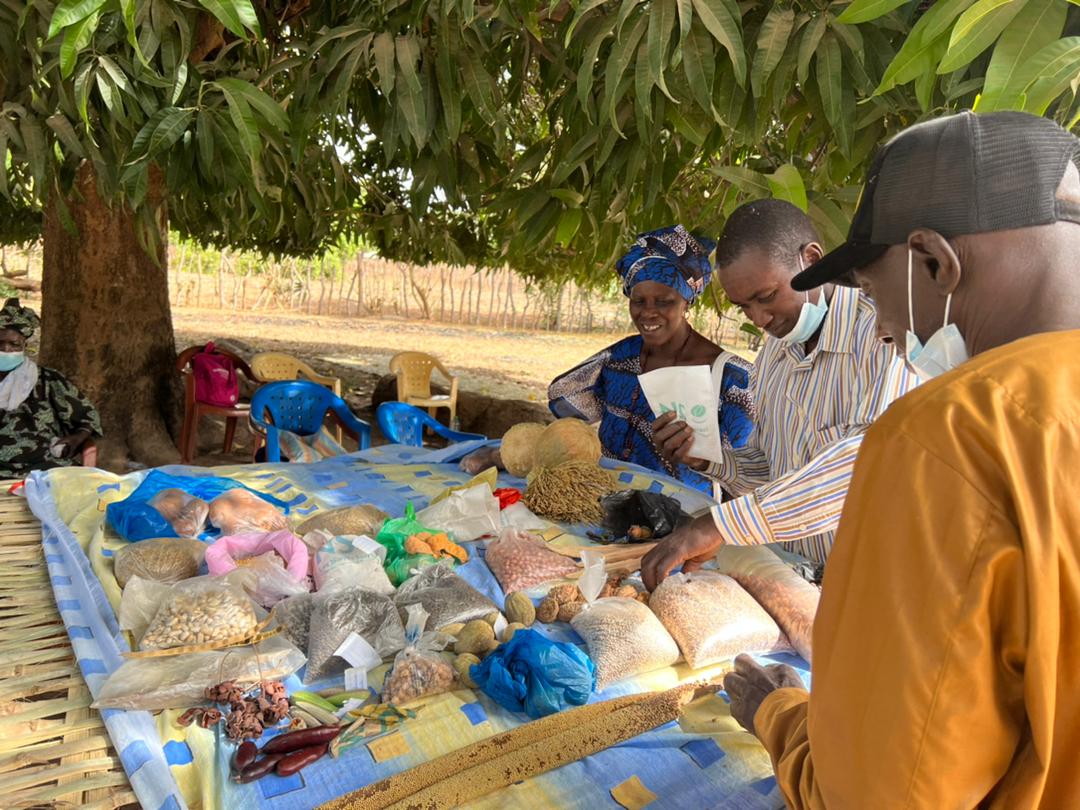
Seed, from where food originates, is of multi-pronged importance in Africa. It shows us the ways food is not just something to fill the stomach. Through their integral role in the food production cycle, African women contribute to biodiversity and transmit indigenous, intergenerational knowledge that bridges the gap between the current and the past.
—
Thank you to the seed stewards who have provided me with this information
Famara Diedhou-Alliance, Food Sovereignty in Africa
Peter Nzioka-Kaani, Small-scale Farmers Association/Haki Nawiri Afrika
Isiah Biwott-Galken, Permaculture, Baringo County
Joyce Brown-Health, Mother Earth Foundation, Nigeria
Susan Owiti-Kenyan, Peasants League Women’s Collective, Kenya
Dominic Kimani, Seed Savers Network, Kenya
Mary Sakala, Rural Women’s Network, Zambia

